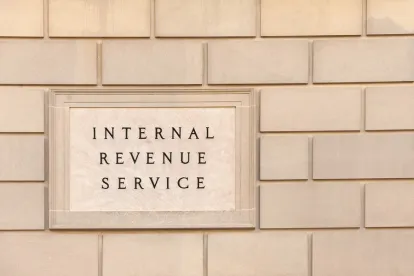The Internal Revenue Service (IRS) has scored another significant victory in its rapidly increasing virtual currency tax enforcement efforts. On May 5, 2021, the US District Court for the Northern District of California entered an order authorizing the IRS to serve a John Doe summons on popular cryptocurrency exchange, Payward Ventures Inc. d/b/a Kraken (Kraken). Specifically, the court’s order grants the IRS permission to serve a John Doe summons on Kraken in order to obtain information on US taxpayers who conducted the equivalent of at least $20,000 in total transactions for each year from 2016 to 2020.
If the IRS follows its playbook from the Coinbase summons, its victory here and with the Poloniex summons (upheld by a court in Massachusetts a few weeks ago), will likely result in thousands of US taxpayers receiving a letter from the IRS regarding their virtual currency transactions. As noted in its response to the court, over the past few years the IRS has learned a great deal about analyzing these transactions and is in possession of information from foreign virtual currency exchanges it’s also analyzing. This victory, coupled with the IRS’ increased knowledge of virtual currency transactions, is a big step in its efforts to, as stated in the IRS’ court filing, “root out tax noncompliance.”
As we previously noted in “Finding John Doe: IRS Steps up Enforcement Efforts to Take the Anonymity Out of Virtual Currency,” the court ordered the government to submit a response explaining its need for the information requested in its summons to Kraken. The government’s response indicates that the IRS has made significant progress in its analysis of summoned data from other cryptocurrency exchanges, such as Coinbase, and its ability to follow leads in the cryptocurrency marketplace. The court’s order approving the summons significantly reinforces the strength of the IRS’ crypto pursuit. These efforts are not solely focused on identifying tax noncompliance at a single exchange like Kraken but to identify the conduct for individuals transacting in cryptocurrency with Kraken accounts who may have additional accounts at other exchanges.
In citing its need for additional information to the court, the IRS expressly stated that in its experience from processing the Coinbase summons information, it has learned that taxpayers will use aliases, false addresses, post office boxes, fictitious entity names or other means to disguise their true identity. Taxpayers who create and use false information are more likely to evade their taxes, the IRS argued. The summons approved by the court requires Kraken to produce extensive records and data regarding its accountholders. Among other things, the summons requires Kraken to produce the following for each US-based account with at least $20,000 in annual transactions:
-
Account registration records and user profile information, including name, date of birth, taxpayer ID number, physical address, email address and telephone number
-
History of any IP addresses used to access the account
-
Payment method information, such as linked bank or credit card account numbers
-
Account transaction activity, including records reflecting the date, time, amount and value of any cryptocurrency transaction
-
Account funding records, including records of any deposits or withdrawals via automated clearing house (ACH) or wire transfer
These records, including historic information, will allow the IRS to determine the true identities of Kraken accountholders, many of whom likely attempted to engage in transactions under the IRS’ radar. Once the IRS has linked a Kraken accountholder to a US taxpayer, the IRS will then be able to use the Kraken data, tax records and data from other cryptocurrency exchanges and offshore accounts to determine whether the taxpayer has complied with the internal revenue laws.
In response to the court’s decision, the IRS reiterated its commitment to pursue cryptocurrency tax violations. “There is no excuse for taxpayers continuing to fail to report the income earned and taxes due from virtual currency transactions,” said Charles Rettig, IRS Commissioner. “This John Doe summons is part of our effort to uncover those who are trying to skirt reporting and avoid paying their fair share.”
For its part, the US Department of Justice (DOJ) also stressed its support for such actions. “Gathering the information in the summons approved today is an important step to ensure cryptocurrency owners are following the tax laws,” said David A. Hubbert, Acting Assistant Attorney General of the DOJ’s Tax Division. “Those who transact with cryptocurrency must meet their tax obligations like any other taxpayer.”
It is no secret that cryptocurrency is in the IRS’ crosshairs. The IRS’ increased use and the courts authorization of the John Doe summons on popular cryptocurrency exchanges continues to demonstrate the growing strength of the IRS’ arsenal of tax collection tools. As the cryptocurrency market continues to grow, so too will enforcement agencies’ interest to make sure it is not being used for nefarious purposes.
Practice Point: As we noted previously in, “Finding John Doe: IRS Steps up Enforcement Efforts to Take the Anonymity Out of Virtual Currency,” taxpayers who have engaged in virtual currency transactions should immediately assess any potential tax and criminal implications, and businesses in this industry should carefully review their policies and processes to ensure that they address potential tax avoidance and anti-money laundering risks associated with their operations. If you have bought, sold, traded or gifted virtual currency, the IRS will expect to see some reporting of that transaction. Additionally, the IRS will be interested if you have received virtual currency in exchange for anything of value, including your services. If you are in the virtual currency industry, the IRS and the DOJ will be scrutinizing your business and your customers and will be asking whether you have addressed the risk of tax evasion or anti-money laundering in your compliance programs. Before the IRS comes knocking with a search warrant or summons, consider being proactive and taking measures to protect yourself, your business and your customers.
Finally, as recently announced, US President Joe Biden plans to give the Tax Man significantly more resources to tackle these noncompliance issues and make sure everyone “pays their fair share.” If the IRS follows its playbook, thousands of letters may be coming soon and multi-million dollar fines for entities, both in the United States and offshore. Now is the time to make sure you don’t get a letter or a visit. Don’t get caught unprepared.






 />i
/>i
